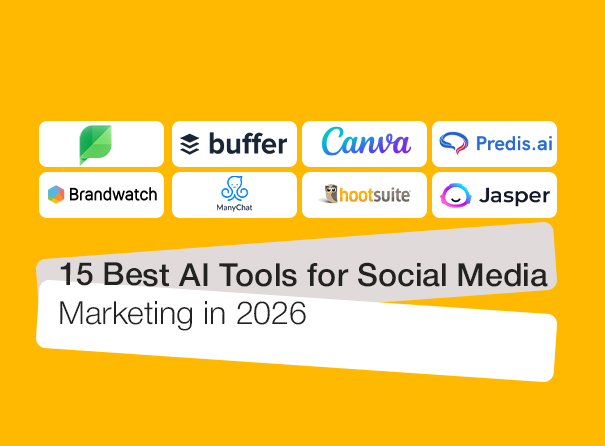TL;DR: - Domain Authority isn’t a Google ranking factor, but it strongly correlates with how well a website ranks. You increase it not with hacks, but by earning high-quality backlinks, publishing link-worthy content, fixing technical SEO, improving internal linking, distributing content widely, and cleaning toxic links. Authority is not chased, it is built as a by-product of trust, relevance, and consistency.
Introduction
When you type in "how to increase domain authority" in Google, what you're essentially asking is one thing: how do I make my site rank better, sooner, and more consistently?
Let's set things straight — Domain Authority (DA) is not a direct Google ranking signal, but it remains one of the most effective indicators of your website's SEO prowess. The higher the DA, the better visibility, more powerful backlinks, and a site that Google can trust.
If keeping up with all this feels like a full-time job (which it sort of is), hire a dedicated search engine optimization services team to do the heavy lifting while you concentrate on growth.
Here in this blog, we will discuss six actionable SEO plays that actually shift the DA needle — no guesswork, no jargon, just action-based strategies.
Why Understanding Website Authority Still Matters
Let's be honest — "Domain Authority" is not the sole measure available. Various tools calculate site strength differently:
- Moz Domain Authority (DA): Estimates the probability of your site to rank based on the quality of the link profile.
- Ahrefs Domain Rating (DR): Targets the referring domains' strength and quantity.
- Semrush Authority Score: Combines link data, traffic data, and site health into a single composite score.
These figures may never exactly correlate, but they all move in the same direction — more links, more authority, more visibility. The idea isn't pursuing a number; it's creating a site that earns trust at scale.
6 Proven SEO Strategies to Secure Real Domain Authority Gains
Now that you understand what drives Domain Authority, let's discuss implementation. These are the six SEO actions that we, as an agency, observe delivering the most impact on client projects — the type of strategies that indeed transfer authority from "meh" to "massive."
These aren't hacks. They're scalable growth systems that build upon themselves over time.
1. Earn High-Quality Backlinks (The Most Powerful Lever)
Still the king of SEO. Backlinks are still the one most powerful signal your site is worth linking to.
- Linkable Assets & Editorial Links: - Develop "link magnets” - content that people naturally link to. That may be research data, industry figures, infographics, or guides breaking something down into simple terms. A Moz study discovered 90% of all content gets zero backlinks. Your mission is to live in the remaining 10%.
- Guest Posting & Digital PR: - Pitch niche blogs, wedding listings, or business magazines with custom guest articles. You receive exposure and a high-authority link — a double-win.
- Broken Link Replacement: - Identify broken outbound links on appropriate websites and offer your content as a replacement. It's one of the most underused white-hat link-building tactics. And if you're targeting for local visibility, see how local link-building strategies ensure your brand takes up residence in regional SERPs.
2. Produce Authoritative, Link-Worthy Content
No backlinks? No issue — create something link-worthy first.
- Long-Form Evergreen Content: - Statistics indicate that content longer than 2,000 words attracts more links and shares. Go deep, rather than wide. Be the final word, not a voice among voices.
- Refreshing & Republishing: - Old content depreciates quickly. Refresh your top-performing posts with fresh stats, improved visuals, and better internal links. When refreshing, do not forget technical optimization. Speeding up load time or UX (as outlined in our e-commerce website speed optimization blog) directly enhances trust and retention.
- Original Research & Data-Led Content: - Run small surveys, make internal data analysis, and publish insights. Original numbers make your stuff linkable on the spot. People love a solid stat source.
3. Optimize Technical SEO and User Experience
Even the best content is wasted if your site's as slow as a sloth.
- Speed, Mobile, Crawl Health, HTTPS: - A one-second delay can decrease conversions by as much as 20%. That's a harsh truth. Your site must load quickly, remain secure, and be crawlable on all devices. For more advanced technical performance advice, look at our e-commerce website speed optimization blog; The concepts are relevant to any website, not only stores.
- Structured Data & Architecture: - Employ schema markup and tidy site structure so Google gets your hierarchy. Clarity = credibility. Consider technical SEO to be the unseen scaffolding that keeps your virtual skyscraper standing tall.
4. Create a Rock-Solid Internal Linking Strategy
Internal links are your secret authority weapon. They link content, guide crawlers, and distribute link equity where it's needed.
- Topic Clusters & Pillar Pages: - Create a single "pillar" page that owns a subject (such as "wedding photography pricing") and link your supportive posts back to it. That cluster informs Google that your site has depth and not merely surface level content.
- Cleaning Up Orphan Pages: - Any page without internal links is practically invisible to search engines. Every bit of content must have at least one internal link pointing to it, or it does not exist in the eyes of Google.
5. Spread Your Content to Gain Discoverability
You can't simply "publish and pray." Half the SEO battle is distribution.
- Social Distribution: - Share your content on LinkedIn, Twitter, specialized Facebook groups, or even Reddit comment threads. Actual traffic and shares boost authority.
- Unlinked Brand Mentions: - Create alerts for your brand name or content title. When someone mentions you without linking, ask them nicely — turn mentions into links.
- Email Amplification: - Direct your top-performing content to your list with a gentle "share or cite us" nudge. It's subtle, yet powerful.
6. Clean Up Your Backlink Profile
Not all backlinks are blessings. Low-quality or spammy links can quietly pull your domain down.
- Identify Harmful Links: - Use Ahrefs, Semrush, or Google Search Console to identify irrelevant or suspicious domains linking to you.
- Disavow When Removal Isn't Possible: - When outreach doesn’t work, upload a disavow file to Google. It tells the algorithm to ignore those links, protecting your DA from unwanted baggage.
Pro tip: Review your backlink health quarterly. Think of it as SEO housekeeping.
What’s a “Good” Authority Score, Really?
There’s no magic number, but here’s a practical framework:
- 0–20: You’re new. Focus on fundamentals.
- 21–40: You’re growing. Keep consistent link velocity.
- 41–60: You’re competing. Start investing in digital PR.
- 61+: You're a leader. Double down on technical expertise and brand authority.
The takeaway? Authority is relative. 40 DA in one space can be dominating, while another space sees you as barely mid-pack. Always benchmark to direct competitors, not global averages.
Conclusion — Domain Authority Is a Result, Not a Trick
Here's the truth: you don't go after Domain Authority — you create it.
Every credible link, fast-loading page, and thoughtful piece of content stacks into your authority score. When done right, DA becomes a reflection of your site’s overall SEO health, not a vanity metric.
If you’re ready to stop guessing and start scaling, Inqnest helps brands strengthen their organic presence with data-driven strategy, content, and technical execution. Because at the end of the day, rankings follow authority and authority follows trust.
Ready to build authority that compounds?
Begin making these six SEO moves today and see your site's reach grow with each wise move.
Frequently Asked Questions
1) How long does it take to increase Domain Authority?
Generally 3–6 months to observe significant uplift if you are regularly gaining quality links and enhancing site fundamentals. Faster if link velocity is high.
2) Can I increase Domain Authority without backlinks?
Not realistically. Technical repairs and content refresh do help, but DA only increases significantly when credible sites link to you.
3) Does purchasing backlinks increase DA?
It may work in the short term, but it can lead to penalties, disavows, and long term trust damage. Editorial/earned links are the sole sustainable solution.
4) Should I be concerned if Moz DA, Ahrefs DR, and Semrush Score do not align?
No. They measure using various models but move directionally. Concentrate on trends, not absolute numbers.
5) What is the quickest lever to boost DA?
Publishing linkable content (information, guides, tools) and offering them up for pitching via PR/guest posts. One strong editorial link from a high-authority webpage can shift DA more than 50 weak links.











.png)









.jpg)


.png)
.png)
.png)

.png)
